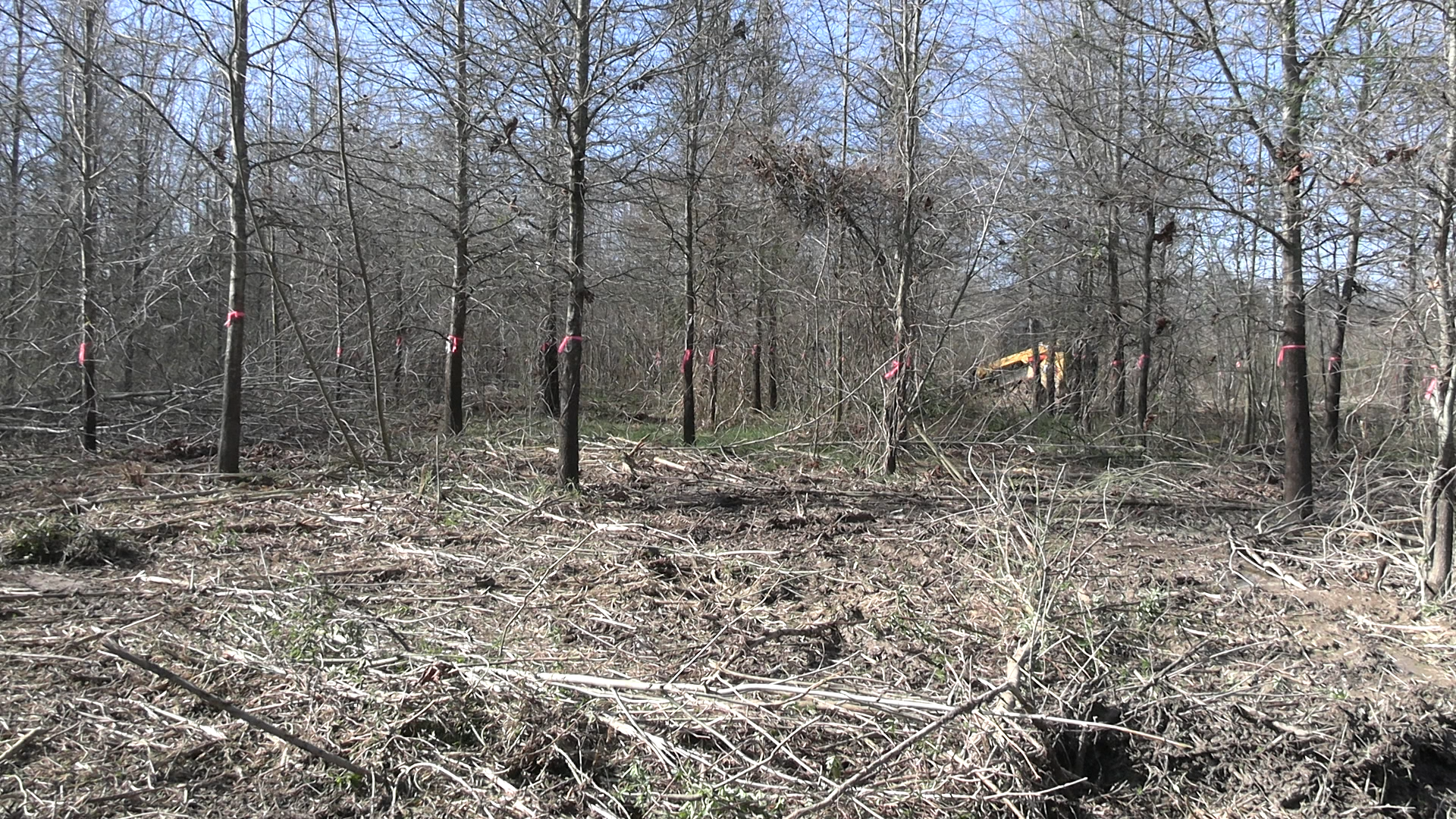
Crews with the Tennessee Wildlife Resources Agency used chainsaws and heavy equipment to thin a willow oak progeny test at the Lick Creek Bottoms Wildlife Management Area in Greene County for the UT Tree Improvement Program at the beginning of March.
Part of the area was planted in 2003. Program Director Scott Schlarbaum says they plan to let the vegetation grow up around the trees instead of maintaining a grass cover. The overgrowth will provide a wildlife habitat to the area.
Schlarbaum says they will chop it back down and clean up the area in a couple years when the trees start producing acorns. They will then collect the acorns.
“All the acorns will go down to the East Tennessee State Nursery to be grown for reforestation here, specifically for East Tennessee because these acorns will be locally adapted,” Schlarbaum said.
Schlarbaum says the program has worked with TWRA since 2001 when the wildlife biologists for Lick Creek collected acorns for the program. They decided to put seed orchards on the property to produce acorns and benefit wildlife.
East Tennessee Forestry Work Unit Supervisor Luke Hadden with TWRA is helping thin the area. He worked with the UT Tree Improvement Program for two years as a student.
“Every chance we get, I try to help him out, and hauling a couple pieces of equipment over here for the day to make that happen, that’s the least we can do to help him out,” Hadden said.
The soon-to-be willow oak seed orchard is down the road from a swamp white oak seed orchard. A turtle crawled through the orchard, showing firsthand how it benefits both the program and the wildlife management area.
They collected 7,000 acorns from the swamp white oak seed orchard. The program kept some for research, but the rest went to the state nursery.
The program plans to integrate the new willow oak seed orchard into its Tennessee seed orchard system. It stretches across the state and produces locally adapted acorns for the state nursery. It’s part of the programs mission to improve the productivity and health of Tennessee forested lands.
